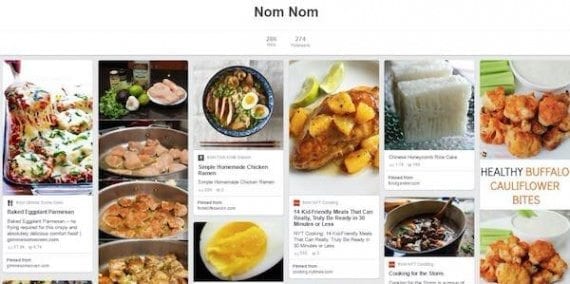
Over the years, Pinterest has vacillated on allowing affiliate marketing links in users’ pins. In a recent policy change, Pinterest now permits such links.
Earlier this month, Pinterest announced a policy change so that users can insert affiliate links with their pins. This is a reversal from its decision in February 2015 to “automatically remove all affiliate links, redirects and trackers on pins.” This most recent change could help merchants drive additional revenue with their affiliate marketing programs.
Pinterest is a social media platform that enables users to curate content. For example, a food blogger could curate a collection of links to restaurants that she recommends. These collections are called “boards,” and each link is called a “pin.”
When a Pinterest user creates a pin, it gets distributed into the content streams of the user’s followers, who can re-pin, exposing it to their followers. Pinterest also has channels to distribute these pins. The channels use a recommendation algorithm. Thus, a user could see the pin without being a follower.
With the new policy, Pinterest users can monetize their content. Say, for example, that a food blogger created a board of recommended cookware. The board could have pins that link users to pots, pans, and other kitchen accessories. Instead of creating direct links to those pots and pans, the blogger can now incorporate her affiliate link, so that if her pinned content drives a transaction, she would earn a commission.
A retailer might ask, “Doesn’t that increase my affiliate expenses? I’m already receiving revenue from Pinterest traffic.”
The answer will vary among retailers. If your business currently receives solid revenue from Pinterest, you may want to update your affiliate terms to prohibit links on Pinterest.
Alternately, if you’re not receiving much traffic from Pinterest, it’s likely that no one is pinning your products. Pinterest’s new policy could be an opportunity to drive incremental revenue, as your affiliates could earn commissions by pinning your products on their boards, thereby providing incentive.
Revenue from affiliate links on Pinterest could be substantial, as the site drives much consumer awareness and purchasing behavior. According to Pinterest’s data, 40 percent of Pinterest users have discovered a new product and re-pinned it. Additionally, 30 percent of Pinterest users have discovered and purchased a fashion or home décor and improvement product after seeing it on Pinterest; and nearly 25 percent of users have discovered and purchased a product related to health, fitness, or entertainment. These numbers, again, are from Pinterest.
Getting Started with Affiliate Marketing on Pinterest
To include Pinterest in your affiliating marketing efforts, follow these three steps.
- Inform your affiliates. Pinterest made this announcement via a short post on its business blog. Affiliates may not follow this blog and they may not know about this change.
- Educate your affiliates. Teach your affiliates how to include an affiliate tracking link in their pins. Affiliates will need to manually add a pin to their board, then edit it to include the tracking link.
- Monitor the impact. Since this is a new affiliate channel, closely monitor its impact on your other channels. Discuss with your social media staff so they understand that revenue once associated with their Pinterest efforts may decline — revenue may shift from one attribution channel (social media marketing) to another (affiliate marketing). You will likely see increased revenue, in my estimation, as pinners can now earn affiliate commissions.
Additional Affiliate Issues
There are additional issues to discuss with your affiliates. The first is the impact this change could have on your affiliates’ Pinterest following. They built their following with pins that other users deemed relevant. If they start posting too many affiliate links, they could dilute the value of their boards, which could negatively impact their credibility and their following.
Second, remind affiliates that affiliate marketing relationships need to be properly disclosed in accordance with rules from the U.S. Federal Trade Commission. This means that any paid post — such as one with an affiliate tracking link — must be clearly identified as an ad. Affiliates can include the disclosure in the pin description.
Finally, remember that Pinterest has wavered on the issue of affiliate links. Back in 2012, Pinterest experimented with being an affiliate itself. It partnered with Skimlinks, an affiliate marketing tool, to auto-convert pins into affiliate links. Pinterest abandoned the test when it came under fire for not disclosing the practice to its users.
Then, in 2015, Pinterest banned all affiliate links. And now, in 2016, it’s allowing them again. Keep that history in mind as you monitor Pinterest and the impact of the new affiliate policy.




